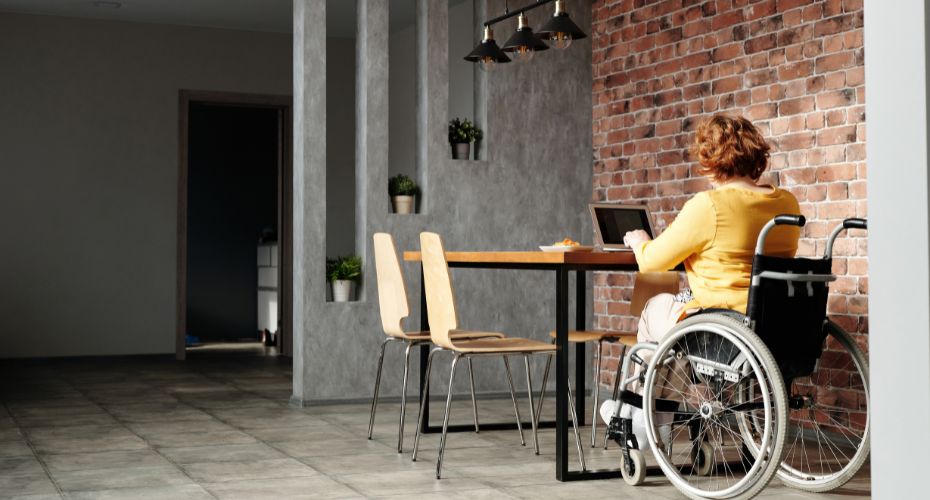
Navigating the complexities of the National Disability Insurance Scheme (NDIS) can be daunting, especially when it comes to accommodation services. As a provider, understanding the intricacies and delivering top-notch care is paramount. This comprehensive guide delves into the world of NDIS accommodation provider‘s perspective, offering valuable insights, best practices, and answers to frequently asked questions.
Understanding NDIS Accommodation
The NDIS is designed to support Australians with disabilities by providing funding for necessary services, including accommodation. NDIS accommodation, also known as Specialist Disability Accommodation (SDA), refers to housing solutions that cater to the specific needs of individuals with significant functional impairments or high support needs.
Types of NDIS Accommodation
- Independent Living Options (ILO): Tailored support allowing individuals to live independently in their own homes.
- Supported Independent Living (SIL): Shared living arrangements with support provided for daily tasks.
- Short-Term Accommodation (STA): Temporary respite care.
- Medium-Term Accommodation (MTA): Transitional housing while awaiting permanent accommodation.
- Specialist Disability Accommodation (SDA): Customized homes for those with extreme functional impairments or high support needs.
The Role of Providers
Providers play a crucial role in the NDIS accommodation ecosystem. They are responsible for delivering high-quality care, ensuring compliance with NDIS standards, and creating supportive environments that promote independence and well-being.
Key Responsibilities
- Assessment and Planning: Conducting comprehensive assessments to understand the specific needs of participants and developing tailored care plans.
- Service Delivery: Providing daily support and care, including assistance with personal activities, household tasks, and community engagement.
- Compliance and Quality Assurance: Ensuring services meet NDIS quality and safety standards through regular audits and continuous improvement initiatives.
- Collaboration: Working with participants, families, and other stakeholders to create holistic care plans that address all aspects of an individual’s needs.
Challenges Faced by Providers
While providing NDIS accommodation is rewarding, it also comes with its challenges. Providers must navigate complex regulations, ensure sustainable funding, and address workforce shortages. Additionally, maintaining high-quality care amidst these challenges requires dedication and innovative solutions.
- Regulatory Compliance: Keeping up with ever-changing NDIS guidelines and ensuring all services adhere to these standards.
- Funding and Resources: Managing financial constraints while delivering comprehensive care.
- Workforce Management: Recruiting, training, and retaining skilled staff in a competitive sector.
- Participant-Centric Care: Balancing individual needs and preferences with available resources and support structures.
Benefits of NDIS Accommodation
Despite the challenges, the benefits of providing NDIS accommodation are substantial. Providers have the opportunity to make a significant impact on participants’ lives, promoting independence and enhancing quality of life.
- Empowerment: Helping individuals with disabilities achieve greater independence and control over their lives.
- Quality of Life: Enhancing daily living experiences through tailored support and high-quality housing solutions.
- Community Integration: Facilitating social inclusion and community engagement for participants.
- Professional Fulfillment: The rewarding experience of making a tangible difference in someone’s life.
Best Practices for Providers
To succeed in the NDIS accommodation sector, providers should adopt best practices that ensure high-quality care and operational efficiency.
- Person-Centered Approach: Prioritize the needs and preferences of participants in all aspects of service delivery.
- Continuous Improvement: Regularly review and enhance service delivery processes to meet evolving standards and participant needs.
- Effective Communication: Maintain open and transparent communication with participants, families, and stakeholders.
- Staff Development: Invest in ongoing training and development for staff to ensure they are equipped with the necessary skills and knowledge.
- Technology Integration: Utilize technology to streamline operations and improve service delivery.
FAQs
1. What is NDIS accommodation?
NDIS accommodation refers to housing solutions funded by the NDIS to support individuals with significant disabilities, including various types such as ILO, SIL, STA, MTA, and SDA.
2. Who is eligible for NDIS accommodation?
Eligibility is determined based on the individual’s disability, functional impairments, and specific needs. Participants must undergo an assessment process.
3. How can providers ensure compliance with NDIS standards?
Providers must stay updated with NDIS guidelines, conduct regular audits, and implement continuous improvement processes to ensure compliance.
4. What are the main challenges faced by NDIS accommodation providers?
Challenges include regulatory compliance, funding constraints, workforce management, and delivering participant-centric care.
5. How do NDIS accommodation services benefit participants?
These services promote independence, enhance quality of life, facilitate community integration, and provide tailored support to meet individual needs.
Conclusion
Providing NDIS accommodation is a dynamic and rewarding field that requires dedication, innovation, and a deep commitment to quality care. By understanding the challenges, embracing best practices, and focusing on participant needs, providers can make a profound difference in the lives of individuals with disabilities. As the NDIS continues to evolve, so too will the opportunities for providers to deliver exceptional accommodation services that empower and enrich the lives of their participants.







